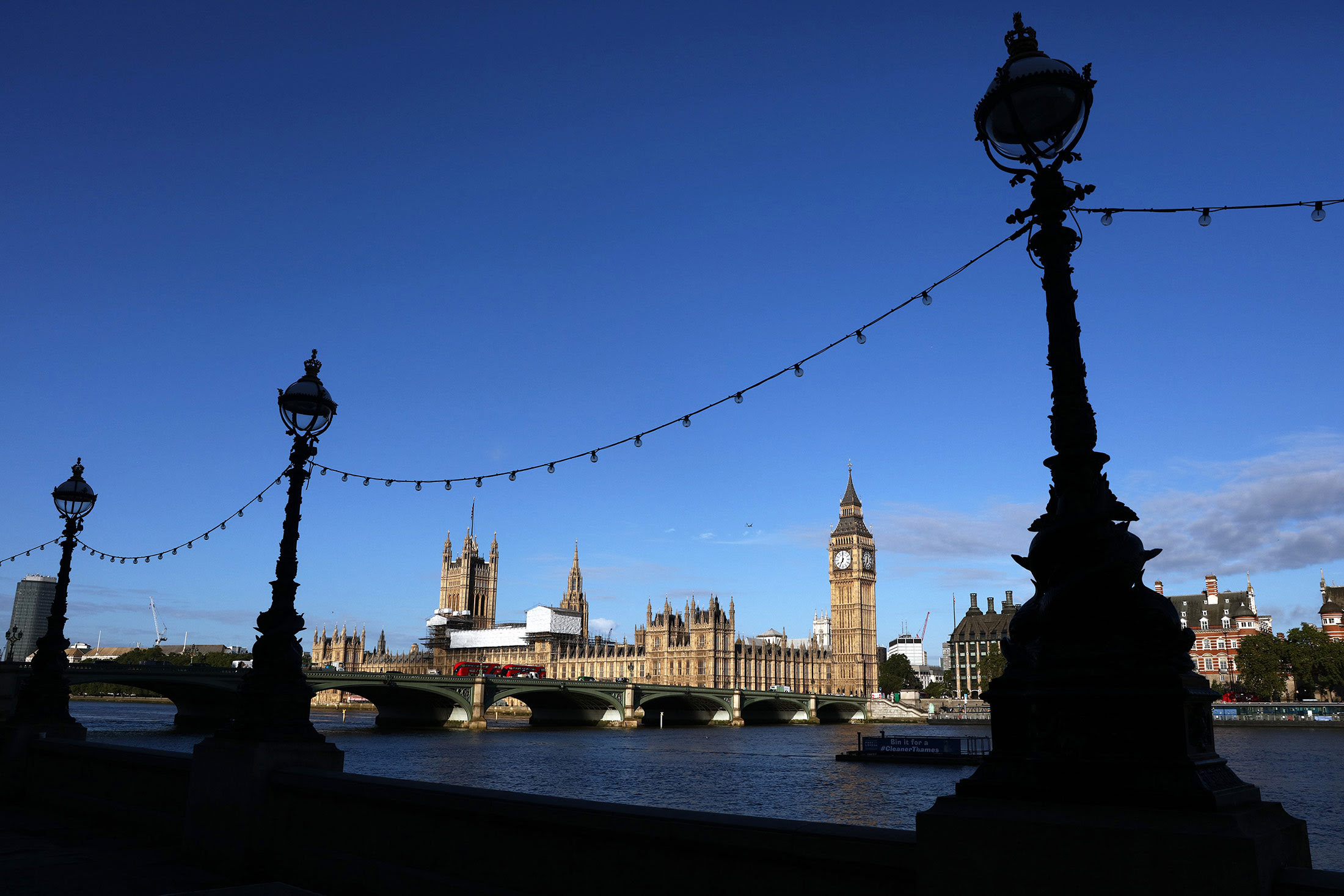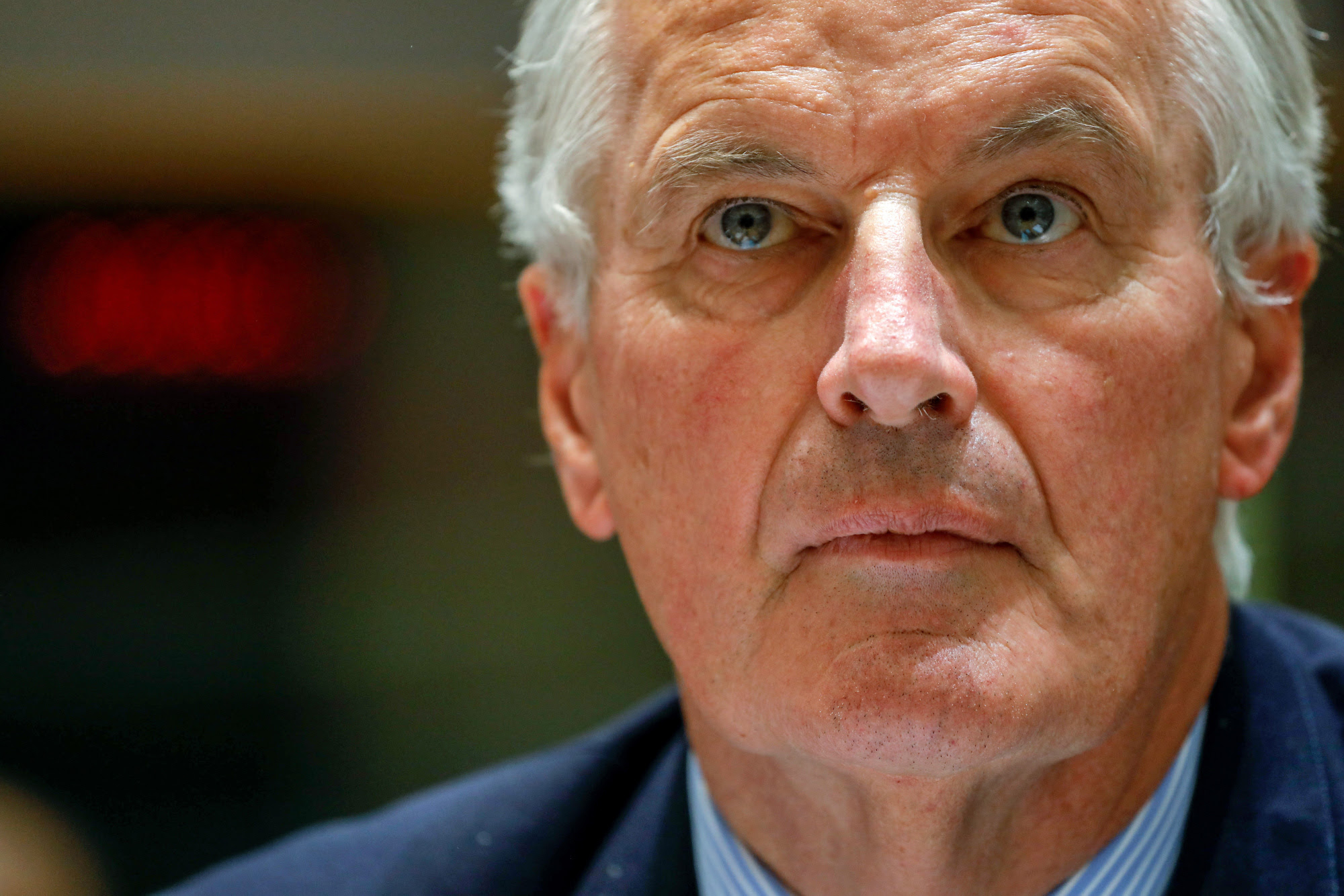An important intervention
Largely quiet since returning from her summer break, the British prime minister will use the address to explain how a raft of position papers recently published by the government offers a vision of a “deep and special partnership” with the European Union. She will make the case for non-stop talks aimed at paving the way for a long-term trade deal.
The European Parliament’s Brexit coordinator, Guy Verhofstadt, appeared to give the date away on Monday when explaining to lawmakers in Brussels why the next round of talks could be pushed back a week.
“Apparently there will be an important intervention by the British prime minister in the coming days, foreseen on Sept. 21, and then it’s a little bit stupid that there is this mixed with the negotiation round.”
The U.K. refused to confirm the delay in negotiations and an official said the Belgian politician was wrong on the date.
But the speech will see May reflect on the U.K.’s position, eight months after she first set out her Brexit vision. Since then a botched election has sapped her of authority and emboldened others in her Cabinet to shape the Brexit strategy.
Ministers now say the U.K. is open to working indirectly with the European Court of Justice and publicly acknowledge that an exit bill will be paid. A transitional deal is now favored, perhaps featuring ongoing membership of the customs union, and there is less talk about bespoke trade deals.
Still, there is virtually no movement on how large the financial settlement should be despite three sessions of negotiations. The stakes are high for the U.K. and May needs a breakthrough more than the EU does. She still hopes to turn the conversation to trade in October and the clock ticks down to Brexit day on March 29, 2019.

Brexit Latest
Repeal | Brexit Secretary David Davis addresses Parliament on the Brexit talks this afternoon as the government prepares to debate its repeal bill. Former Business Minister Anna Soubry, a prominent Europhile, told the BBC she didn’t know of any Conservative lawmaker who would vote against the final version of the bill.
Cut-and-Paste | May’s plan to replicate post-Brexit trade deals will begin with the Swiss and South Koreans because of how much they contribute to the U.K. economy. The Department for International Trade doesn’t have the capacity to negotiate 40 new free-trade agreements at once, so it’s focusing on rolling over deals it benefits from as a European EU member and on the ones that carry the most trade, according to a senior official.

Science Spending | The U.K. still wants to contribute to the EU’s science programs after Brexit, a government paper will say on Wednesday, according to the Financial Times.
“Stupid Decision” | Leaving the EU was a “stupid” choice and only the will of the British people can stop it, Martin Selmayr, the chief of staff to European Commission President Jean-Claude Juncker, said. EU chief Brexit negotiator Michel Barnier used Twitter to deny weekend reports that he had pledged to educate Britons on the costs of leaving the single market.

Irish Sighs | Ireland’s Foreign Minister Simon Coveney argued Britain has provided no “credible answers” on the border between his country and the U.K. and said more work is needed. Separately, Ireland’s Fiscal Advisory Council said high debt levels leave the nation “vulnerable to adverse shocks” such as a “harder-than-expected Brexit impact”
Votes of Confidence | Norway’s sovereign wealth fund said it will increase the share of pound-denominated securities in its $333 billion bond portfolio, and Hansteen Holdings said a booming e-commerce business and growth from small enterprises in the U.K. outweighed any anxieties surrounding the divorce. Still, M&G Investments said it will transfer assets of four U.K.-domiciled open-ended funds to its Luxembourg platform in 2018, in a “precautionary” move ahead of Brexit.
Bloomberg View | Theresa May has the power to put the Brexit talks back on track, argues Clive Crook, but she “needs to get a grip.” The PM should push international arbitration on the exit bill and come out strongly in favor of Chancellor Philip Hammond’s plan for a transitional deal, Crook writes. The price of not doing so could be a cliff-edge Brexit that endangers the whole project.



Comentarios
Publicar un comentario